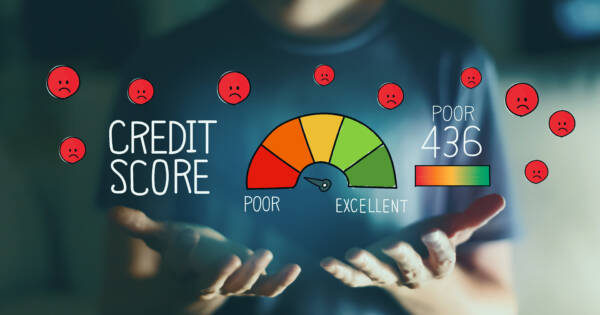Travel credit cards have become all the rage. That’s in large part thanks to rewards programs that let cardholders collect points that can be redeemed for valuable perks. This fast-growing sector of the financial services market has some clear winners in the form of cards that stand head and shoulders above others.
In compiling this list, we took a balanced approach that considers the differing needs and priorities of customers in a full range of income brackets. Not all the cards on this list will appeal to every consumer, but we’re confident you’ll find at least one on this list that will appeal to you no matter what your current financial situation.
Capital One Venture Rewards Card
Dubbed the best travel card of 2018 by CNBC, the Capital One Venture Rewards card offers a long list of attractive benefits, headlined by a welcome bonus of 50,000 reward points. You can earn the welcome bonus by spending $3,000 on purchases during your first three months of membership. Those points carry a redemption value of up to $500 in travel rewards, and they never expire as long as your account remains active.
Here’s a run-down of the card’s other major features:
- 10x points when you use the card to pay for a stay at thousands of participating hotels between now and January 2020.
- 2x points on all other purchases.
- Points transferability to 12 popular travel rewards programs.
- No blackout dates or restrictions on travel dates, airlines, or hotels when you pay with points.
- Free out-of-country transactions.
- $100 credit toward your TSA PreCheck or Global Entry application fee when you pay with your card.
- No annual fee for the first year; $95 after that.
The card doesn’t offer an introductory interest rate, and instead features a variable APR ranging from 17.99% to 25.24%. One other downside to consider: the card doesn’t have a promotional deal in place with a particular airline, so if you’re a frequent flyer and you have a strong airline preference, it probably won’t deliver as much value as a rewards card backed by that airline.
Bank of America Travel Rewards Card
If you’re looking for a travel card that delivers powerful points accumulation features without requiring complex category tracking, this is a great option. It carries a $0 annual fee, which is very rare for cards that deliver multipliers on your spending. The Bank of America Travel Rewards Visa card pays 1.5 points for every dollar you spend, and if you bank with Bank of America or invest with Merrill Lynch, you could earn up to 75% in points bonuses by hitting minimum balance milestones in your banking or brokerage accounts.
The card also delivers a healthy welcome bonus of 25,000 points, which you can earn by spending $1,000 or more on purchases in your first three months as a cardholder. That bonus is less than many similar cards, but the bar for reaching them is also far lower. All in all, this card stacks up as a great travel credit card option for light to moderate spenders.
Chase Sapphire Reserve Visa Card
Chase Bank’s Sapphire Reserve Visa routinely tops lists of the best travel credit cards and the best Visa-branded credit cards. It offers 50,000 welcome points to cardholders who spend $4,000 or more on purchases in the first three months, which is great. But its real value is in the exclusive perks you’ll enjoy as a member:
- A $300 travel credit, offered annually.
- Triple points on all dining and travel expenses.
- 1.5x on your points when you redeem them to pay for airfare.
- Free access to Priority Pass airport lounges anywhere in the world.
The annual fee is $450, which is high. However, your annual travel credit pays for most of it, leaving you with a card that delivers fantastic perks for a very reasonable cost.
Uber Visa Card
This card is often overlooked as one of the top credit cards for frequent travelers, since it’s designed for lower-spending consumers. Yet, that’s exactly the reason it made our list: it is possibly the best travel card for younger people, budget travelers, and cost-conscious consumers who make a habit of using their credit card as infrequently as possible.
If you spend just $500 in your first 90 days as a cardholding member, you’ll automatically get a $100 cash back bonus—a nice perk for travelers on shoestring budgets. You’ll also get 4% cash back on restaurant spending, 3% cash back on travel, 2% cash back for all your online spending, and up to $50 in annual credits for streaming media services like Netflix, Amazon Prime, and YouTube Premium with $5,000 in annual spending outside your bonus category. Add in smartphone insurance for theft and damage and you’ve got a winning proposition for young travelers and backpackers.
American Express: The Platinum Card
This premium card is designed to appeal to high-spending travelers who enjoy living in the lap of luxury. You can get up to 5x points for every dollar you spend on air travel and hotel stays if you meet booking conditions, and you’ll also get $200 in annual airline credits and another $200 annual credit toward Uber fares. You’ll also be registered as a VIP with Uber in the U.S., and get up to $15 in Uber discounts every month.
This card’s biggest perk is its luxury rewards: you qualify for special benefits at participating luxury resorts and hotels, you’ll get VIP access to exclusive events, and you’ll also be welcomed to more than 1,000 high-end lounges at airports around the globe. Oh, and did we mention the 60,000 bonus points? You’ll get those by spending $5,000 on purchases during your first three months as a member.
On the down side, the card carries a high annual fee of $550. Some cardholders may also find it a little limiting, since American Express doesn’t have as much market penetration as Mastercard or Visa.
Before You Open a New Account…
Remember: every credit card application you submit gets noted on your credit report, and can temporarily affect your score. Thus, you should apply sparingly, as sending out a flurry of applications can really knock your credit rating down, opening the possibility of a rejection that could do further damage to your rating. Choose your card carefully, and apply only for cards that seem likely to prove worthwhile based on the amount of travel you do and your spending habits.
 Shutterstock
Shutterstock







